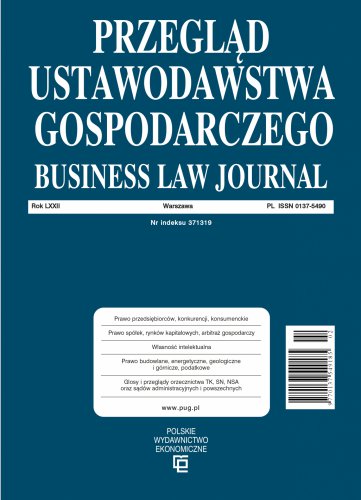Tax penal code and administrative responsibility
The research objective of the article is to determine, whether the model of criminal and fiscal liability is an essential complement of the administrative liability and if legal and financial sanctions should be enhanced by the impact of the update of other sanctions i.e. criminal sanctions or criminal and fiscal sanctions. The legislator, to protect monetary interests by a criminal sanction, decided to introduce the criminal liability regarding legal interests, which already have legal protection. The fiscal law is an additional form to remedy the infringement of financial law, which has some instruments to penalize some actions, even against the recipient's will, creating the possibility of imposing grievous economic sanctions. In the criminal and fiscal law's doctrine and in administrative law's doctrine also, there is no reason to deny such a state of affairs. It is said, that administrative liability is based on different rules, implemented with another authorities and procedure, therefore taxpayer exposed to tax sanction, can also be subject to fiscal and penal liability.
References
Cholewicki, J. (2014). Restrykcyjność polskiego modelu karnego skarbowego. Prokuratura i Prawo, (4), 83–102.
Elffers, H., Weigel, R. H., Hessing, D. J. (1987). The consequences of different strategies for measuring tax evasion behavior. Journal of Economic Psychology, 8(3), 311–337.
Farrington, D. P., Langan, P. A., Wilkstroem, P. O. (1994). Changes in Crime and Punishment in America, England and Sweden between 1980s
and 1990s. Studies on Crime and Crime Prevention, (3), 104–131.
Gertz, M. G., Gould, L. C. (1995). Fear of punishment and the willingness to engage in criminal behavior: A research note. Journal of Criminal Justice, 23(4), 377–384.
Jasudowicz, T. (1996). Administracja wobec praw człowieka. Toruń: TNOiK.
Kmieciak, Z. (2000). Ogólne zasady prawa i postępowania administracyjnego. Warszawa: PWN.
Kosikowski, C., Ruśkowski, E. (1993). Finanse i prawo finansowe (t. 1). Białystok: Wydawnictwa agencji „ER”
Małecki, J. (1998). Z problematyki sankcji w prawie podatkowym ze szczególnym uwzględnieniem podatku VAT. W: B. Brzeziński, J. Głuchowski, C. Kosikowski (red.), Studia z dziedziny prawa podatkowego. Księga pamiątkowa ku czci Profesora Apoloniusza Kosteckiego (155–163), Toruń: TNOiK.
Ministerstwo Sprawiedliwości. (2013). Rok 2012. Prawomocnie skazani dorośli wg rodzajów przestępstw i wymiaru kary–czyn główny. Warszawa: Wydział Statystycznej Informacji Zarządczej Ministerstwo Sprawiedliwości.
Sepioło-Jankowska, I. (2016). Optymalny model odpowiedzialności prawnej za czyny karne skarbowe. Warszawa: C.H. Beck.
Szydło, M. (2003). Charakter i struktura prawna administracyjnych kar pieniężnych. Studia Prawnicze, (4), 123–150.
Webley, P., Halstead, S. (1986). Tax evasion on the micro: Significant simulations or expedient experiments? The Journal of Interdisciplinary Economics, 1(2), 87–100.
Wróbel, W. (2003). Zmiana normatywna i zasady intertemporalne w prawie karnym. Kraków: Zakamycze.

